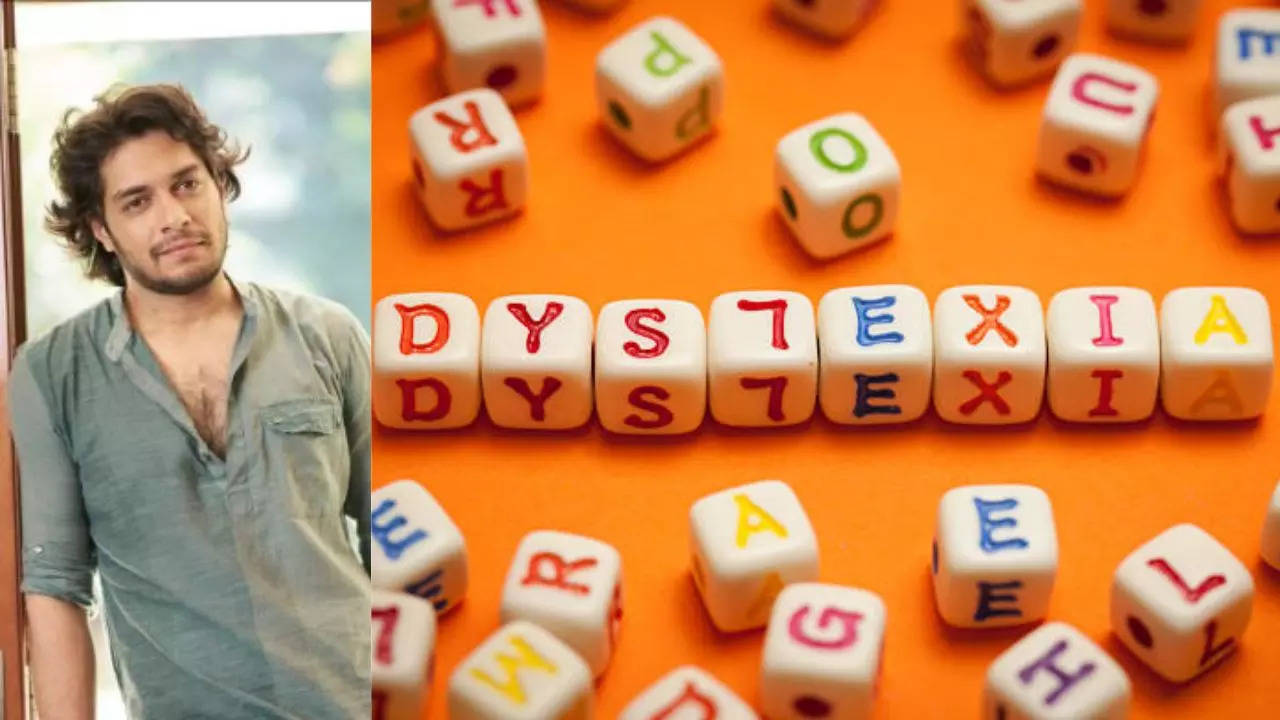Contents
I was diagnosed with dyslexia: Junaid Khan opens up on learning disability, he was diagnosed with dyslexia at the age of 6What is dyslexia?How does dyslexia affect language comprehension?What causes dyslexia?geneticsDifferences in brain development and functionDisruption of brain development and function
-
news
-
Health
I was diagnosed with dyslexia: Junaid Khan opens up on learning disability, he was diagnosed with dyslexia at the age of 6
Aamir Khan’s son Junaid has opened up on being diagnosed with dyslexia – a learning disability that affects the skills involved in accurate and fluent word reading and spelling – at the age of six. The condition, which interferes with your brain using spoken language to decode writing, is called a lifelong condition. Read on to know more.

Junaid said that his parents were not very strict about his studies, this decision was influenced by his diagnosis.
Aamir Khan’s son Junaid has opened up about suffering from dyslexia, a learning difficulty that mainly affects the skills involved in accurate and fluent word reading and spelling.
The 31-year-old actor said this is his father’s important film Taare Zameen Par, In which the topic was widely discussed, leading to the significant discovery of Junaid’s condition after the actor and his then wife Reena Dutta recognized the symptoms in him. Typical features of dyslexia are difficulties in phonological awareness, verbal memory, and verbal processing speed.
Talking about his situation, Junaid said that his parents were not very strict about his studies, this decision was influenced by his diagnosis. “Neither of my parents were particular about my results. Junaid said in an interview, I was diagnosed with dyslexia very early, so they took care of that, especially during my schooling.
Junaid said he got early intervention, which helped him Overcome the challenges of dyslexia“I had a lot of help early on, so it didn’t affect me that much as I grew up. In that respect, I guess I was lucky,” he said.
What is dyslexia?
According to experts, dyslexia makes language-related tasks extremely difficult and is caused by a disruption in how your brain processes writing so that you can understand it. Most people are diagnosed with dyslexia in childhood, and it is usually a lifelong problem, also known as “developmental dyslexia”.
According to experts, this condition interferes with how your brain uses spoken language to decode writing. Your brain has trouble processing what you read, especially breaking words into sounds or connecting letters to sounds when reading.
This slowdown in processing can affect all of the following things, including:
- Delay in reading because you have trouble processing and understanding words
- Difficulties in writing and spelling
- Problems with how you store words and their meanings in your memory
- trouble forming sentences to communicate more complex ideas
Doctors say the situation is overall unusual. Experts estimate that it affects about 7 percent of people worldwide. Dyslexia falls under the category of “specific learning disorders.” There are three main subtypes of that disorder:
- Reading
- Write
- Mathematic
How does dyslexia affect language comprehension?
Reading starts with spoken language. In childhood, speaking begins with making simple sounds. As you learn more sounds, you also learn how to use the sounds to form words, phrases, and sentences.
Learning to read involves associating sounds with various written symbols and letters.
What causes dyslexia?
The exact cause of dyslexia is unclearHowever, several clues indicate how and why most cases occur.
genetics
Dyslexia is highly genetic and runs in families, as one parent with dyslexia has a 30-50 percent chance of inheriting it. genetic conditions such as Down syndrome This also increases the chances of having dyslexia.
Differences in brain development and function
If you have dyslexia, you are neurodivergent, which means your brain is built or works differently than expected. Research shows that people with dyslexia have differences in brain structure, function, and chemistry.
Disruption of brain development and function
Infections, toxic exposures, and other events can disrupt fetal development and increase the likelihood of later developing dyslexia.
Get the latest news live on Times Now with breaking news and top headlines from around the world.


